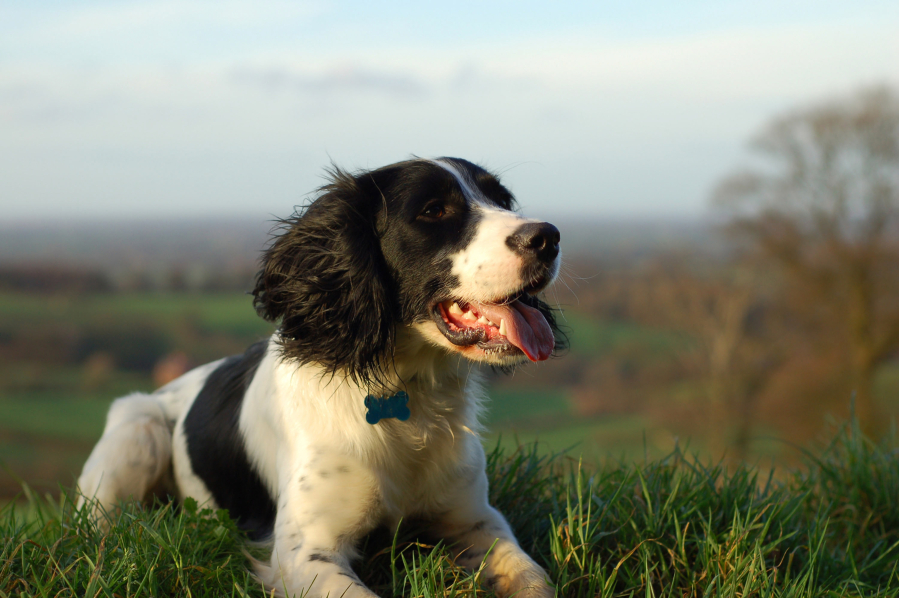Fran takes care of Ellie, a 4-year-old springer spaniel with a somewhat embarrassing problem — at least for Fran. It seems that over the past few months Ellie has been paying a lot of attention to the area around her vulva. She spends an inordinate amount of time licking and the skin in that location is very reddened.
In the past, Ellie has been treated with antibiotics prescribed by her veterinarian, which has caused improvement, but upon completion of the antibiotic coarse, the problem returns. Ellie appears to be very uncomfortable and Fran wants to help.
Dogs have the ability to reach their perivulvar area with their tongues and do so on a regular basis as part of their hygiene routine. When this cleaning behavior becomes excessive, it can indicate an underlying problem.
Sometimes, overzealous cleaning behavior itself can cause a problem. The area around the vulva actually consists of a fold of skin with the vulva protruding from the middle of the fold. If a dog grooms the area in even a normal amount, the moisture from the mouth can, along with the warmth and lack of air circulation, make a ripe environment for bacteria or yeast to colonize. This condition then creates irritation, which leads to more licking, which leads to more irritation, which leads to more licking which, I think the picture is clear. It is often quite difficult to figure out which came first, a primary perivulvar infection in the face of normal grooming or an infection secondary to increased grooming behavior.
There are predisposing conditions that can make dogs much more prone to developing perivulvar infections. There is a condition called immature vulva in which the vulva does not fully develop, leaving a small vulva tucked deeply into the perivulvar folds. This creates deeper than normal folds that collect moisture and warmth, again lacking air circulation, and presto, a recipe for infection.
Obesity can lead to increased depth to the perivulvar folds as fat accumulates in the skin around the vulva, pushing it out and therefore deepening the folds. The result, the same as with immature vulva, a ripe environment is created for bacterial or fungal colonization. This condition can often be eliminated by eliminating the weight problem.
Often these cases cannot be truly cured with the use of antibiotics to combat the bacteria. Certainly, antibiotics can and usually are necessary when bacteria are involved; however, when there is a conformational problem such as immature vulva or obesity, all the antibiotics in the world will not cure the problem until the underlying condition is eliminated.
With cases of immature vulva, there is a surgical procedure called an episioplasty which will eliminate the folds. This surgery is also effective in cases in which a chronic infection in the perivulvar can not be eliminated even though the conformation in the vulvar area is considered normal. The surgery can serve to exteriorize the vulva, further removing the folds and allowing for increased air circulation, resulting in an elimination of the ripe bacterial environment.
One point I would like to make concerning these types of cases is the importance of culturing the area around the vulva. It is necessary to know what type of bacteria has colonized the perivulvar folds and what antibiotic(s) work best against it. Regardless of whether the infection is primary or due to a conformational problem requiring surgery, antibiotics are always needed when bacteria are involved and it is appropriate to pick the best one to use.
A final note is to make sure to rule out a urinary tract problem such as an infection. A urinary tract infection can, when the dog urinates, seed bacteria into the perivulvar folds and set up an infection there as well.
Obviously, this condition irritating Ellie requires further investigation by her veterinarian. I am confident that once the true underlying cause is exposed, a cure can be found.
Jeff Kahler is a veterinarian in Modesto, Calif. Questions can be submitted to Your Pet in care of LifeStyles, The Modesto Bee, P.O. Box 5256, Modesto, CA 95352.



